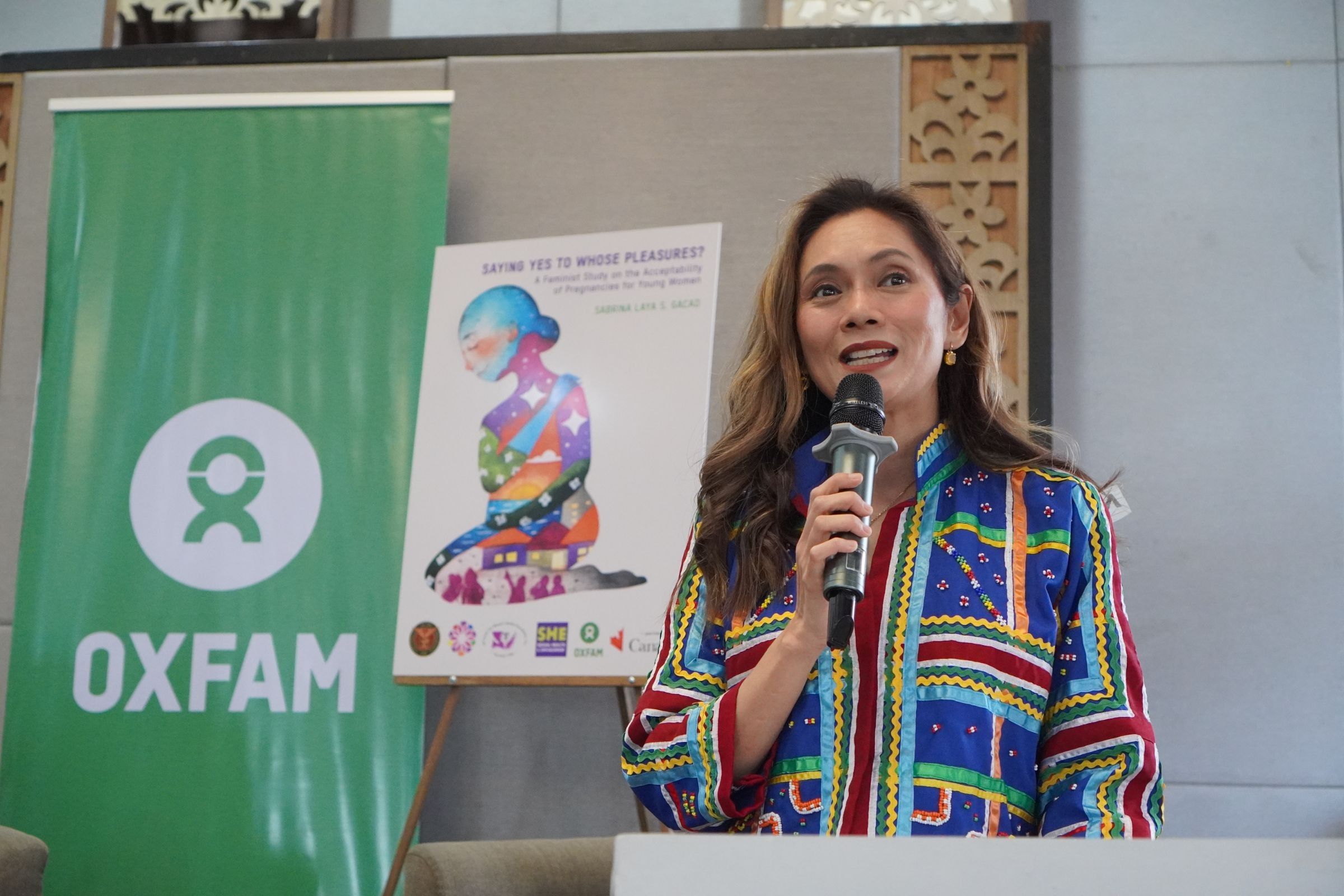Let's talk about sex and pleasure

MANILA, Philippines — World Sexual Health Day is celebrated annually on September 4, and this year’s theme was Let’s Talk Pleasure.
According to the World Association for Sexual Health (or WAS), “pleasure is a critical part of sexual health and rights which makes it central to overall health and well-being.”
Talking about pleasure is quite a leap in a country that remains conservative in matters of sexuality, where people are not comfortable talking openly about sex, and where sex is still seen as necessarily heterosexual and in the context of marriage. There are even individuals who are unable to verbalize the words vagina or penis, or are embarrassed when they hear these words.
On September 6, to commemorate World Sexual Health Day, the UP Center for Women’s and Gender Studies and Oxfam Pilipinas launched its joint publication entitled “Saying Yes to Whose Pleasures? A Feminist Study on the Acceptability of Pregnancies for Young Women” by Assistant Professor Sabrina L. Gacad of the Department of Women and Development Studies, UP Diliman. The research paper, which is available to the public through the Oxfam Pilipinas and UPCWGS websites, is most appropriate for the theme of World Sexual Health Day 2022.
In the paper, teenage pregnancy was critically reframed. At the center of this reframing are the young women themselves who are not represented as victims, or as actors devoid of agency and power, as they most commonly are.
The pregnancy acceptability framework utilized explicitly recognizes the various structural constraints that pregnant young women contend with; and at the same time, the framework helps us understand how these young women are able to use whatever power they have, no matter how limited, to make the best of what would usually be considered an unfortunate situation.
The author made the vital connection between the empowerment of adolescents and the elimination of the stigma against teen pregnancies and teen sexuality. She highlighted the need for “comprehensive, sex-positive, pleasure-centered sexuality education and sexual and reproductive health services that support people in transforming embodied experiences to autonomous voices for consent, refusal, and help-seeking that will support teen girls and young women in finding the greater power in their pleasure.”
This perspective on pleasure is very much in support of the World Association for Sexual Health’s Declaration on Sexual Pleasure, which emphasizes that sexual pleasure is premised on the fulfillment of sexual rights that relate to health, freedom, equality, privacy, autonomy, bodily integrity, and dignity.
Adolescents are sexual beings and they have sexual rights. This means that they are entitled not only to sexual well-being but also to sexual pleasure.
Teenage pregnancy is a problem also because of society’s persistently puritanical views on sex. We refuse to acknowledge that adolescents have sexual rights, and insist that they should not be engaging in sex.
RELATED: Experts, advocates urge action on ‘unseen crisis of unintended pregnancy'
We continue to utilize the ineffective dominant perspectives on adolescent pregnancy which emphasize population control, violence, health risks, and social and economic costs – rather than sexual needs, desires, and pleasures.
Whether or not we believe that young people have sexual rights, the reality is that they are engaging in sex, and the lack of access to quality sexual and reproductive health services will not hinder or stop them.
There is also the tenacious belief that adolescents are not mature enough for sex. However, those of them who are sexually active and seek information and services to protect themselves from unwanted pregnancy and sexually transmitted infections are, in fact, acting maturely.
Teenage girls should not be denied the right to reproductive self-determination. As a component of their rights to life and health, they have a right to SRHR (Sexual and Reproductive Health and Rights) information and services, which will protect them not only from early pregnancies and sexually transmitted infections, but also unsafe abortions.
What we must do is support the empowerment of young women to exercise full bodily autonomy — to make informed decisions about their bodies and lives, which includes recognizing and guaranteeing their sexual rights.
A rights-based approach implies that we should raise their critical consciousness so that they can claim their rights to SRHR information and services, comprehensive sexuality education, bodily integrity, consensual sexual relations and marriage, and compel duty bearers to fulfill these sexual rights.
Pleasure should be an integral part of our vocabulary when we talk about sexual health and sexual rights, including those of adolescents, and we must normalize conversations about its physical and/or emotional aspects. Sexual pleasure is, after all, a natural aspect of human experience and well-being.
--
Dr. Nathalie Africa-Verceles is the director of the University of the Philippines Center for Women's and Gender Studies, which is among the partner organizations of Oxfam Pilipinas for their Sexual Health and Empowerment (SHE) project.
- Latest






























